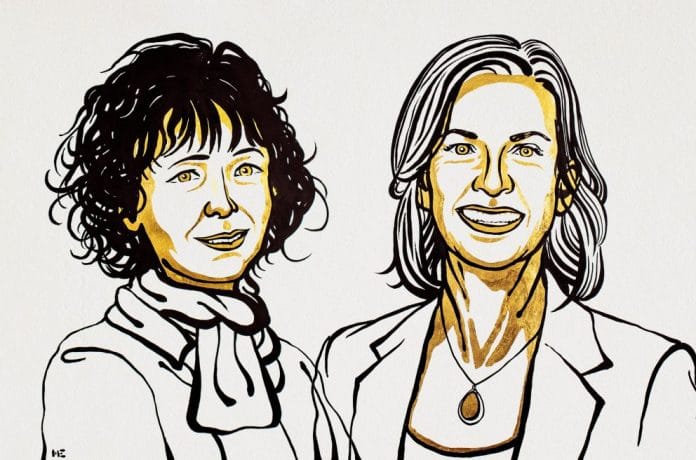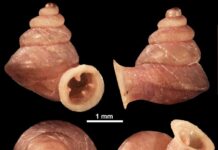TWO women have been awarded the 2020 Nobel prize in chemistry for the discovery of the CRISPR genetic scissors used to edit the DNA of animals, plants and microorganisms with extremely high precision.
Emmanuelle Charpentier and Jennifer A Doudna will share the 10m Swedish kronor (£870,000) prize announced on Wednesday by the Royal Swedish Academy of Sciences in Stockholm – the first time that two women have shared the prize.
The researchers won the prize for “for the development of a method for genome editing”, according to the formal citation from the Nobel committee.
“There is enormous power in this genetic tool, which affects us all,” said Claes Gustafsson, chair of the Nobel Committee for Chemistry. “It has not only revolutionized basic science, but also resulted in innovative crops and will lead to groundbreaking new medical treatments.”
Gustafsson said that, as a result, any genome can now be edited “to fix genetic damage,” adding that the tool “will provide humankind with great opportunities.”
But he cautioned that the “enormous power of this technology means we have to use it with great care.”
It has already raised serious ethical questions in the scientific community. Most of the world became more aware of CRISPR in 2018, when Chinese scientist Dr. He Jiankui revealed he had helped make the world’s first gene-edited babies, to try to engineer resistance to future infection with the AIDS virus. His work was denounced worldwide as unsafe human experimentation because of the risk of causing unintended changes that can pass to future generations, and he’s currently in prison.

















